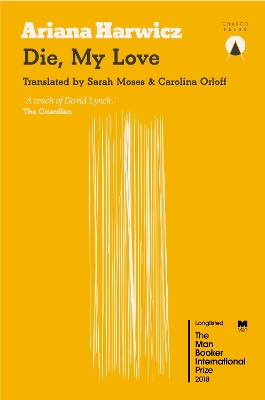Reviewed by Michael @ Knowledge Lost on
Whether or not this woman is suffering from postnatal depression or not is not something I wish to debate. I wonder if trying to diagnose her would sell this book short. She is going through so many different emotions and never holds back with her feelings. Die, My Love feels like a gut punch of emotions. A novel that is to be experienced more than analysed.
There is no doubt in my mind that this is an autobiographical novel. I cannot imagine Ariana Harwicz being able to write this without living the experience. There is an intensity in the writing that never feels fake. The conflicting emotions of yearning for freedom mixed with her motherly instincts hold the narrative together. The connection with nature stems from her constant desire to be free but also a reference to a child’s carefree nature.
“I think about how a child is a wild animal, about another person carrying your heart forever.”
The narrative that Ariana Harwicz is able to weave is so affecting; we are able to follow this vivid portrayal of a mother and experience every single emotion and thought, no matter how dark or disturbing it may be. There are many times where I feel like this protagonist is over sharing but that just adds to the raw and intense honesty. I was left in awe and have not been able to get the images from this novel out of my head. It will be a book that I will come back to again and again.
I have been going down a rabbit hole of Argentinian literature and Die, My Love seems to invoke a common style, often found in recent novellas from this great literary scene. It pleases me to see how many Argentinian women writers are getting their moment to shine and I expect to see more in the future. There is something about these books that are able to explore so much in such a short novel. For great Argentinian books by women including Die, My Love, look no further than Things We Lost in the Fire by Mariana Enríquez, Fever Dream by Samanta Schweblin and Savage Theories by Pola Oloixarac.
This review originally appeared on my blog; http://www.knowledgelost.org/book-reviews/genre/contemporary/die-my-love-by-ariana-harwicz/
Reading updates
- Started reading
- 17 March, 2018: Finished reading
- 17 March, 2018: Reviewed
